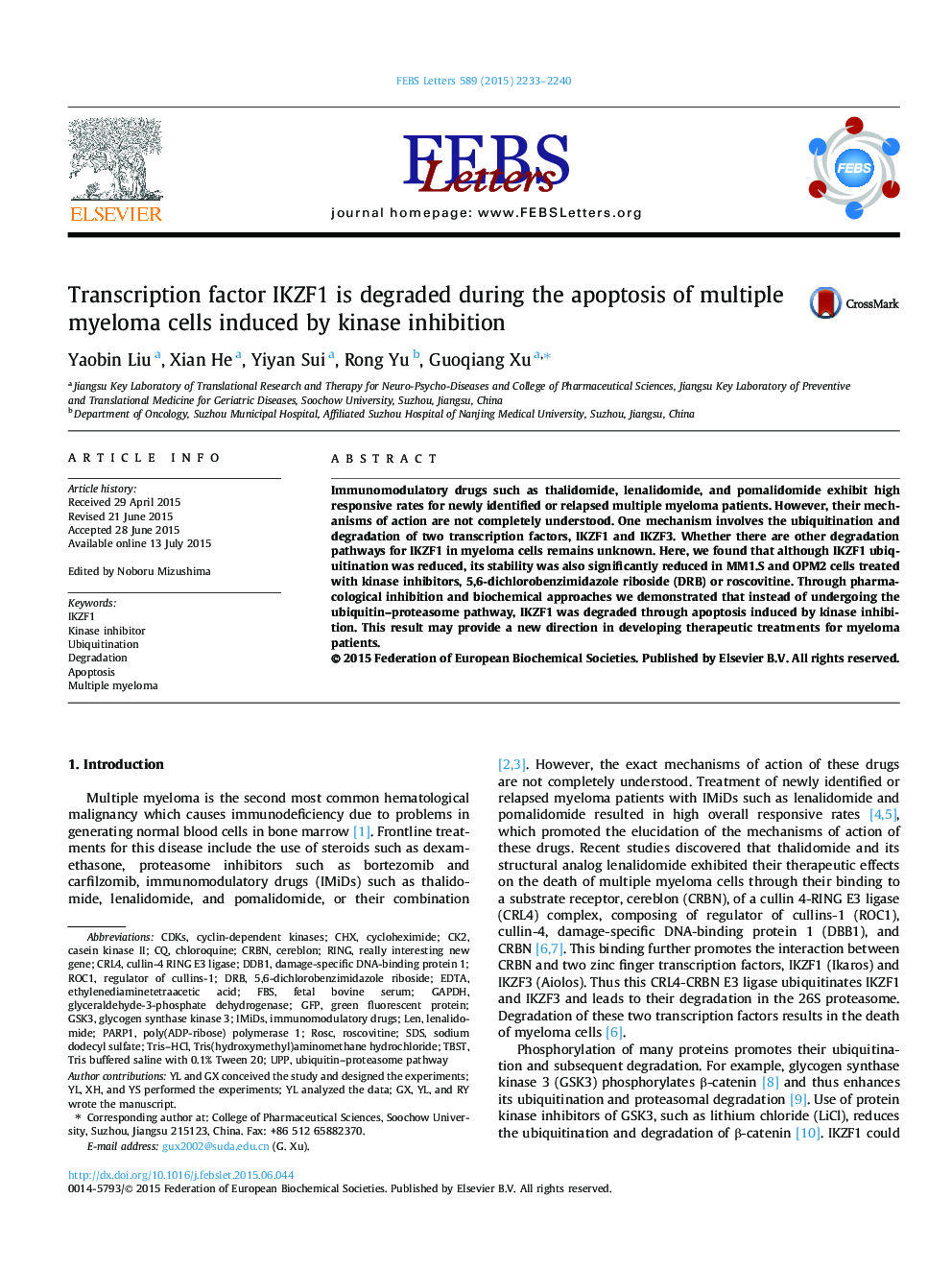| Article ID | Journal | Published Year | Pages | File Type |
|---|---|---|---|---|
| 2047504 | FEBS Letters | 2015 | 8 Pages |
•The protein level of IKZF1 is reduced by kinase inhibitors.•Kinase inhibition reduces IKZF1 ubiquitination but does not increase its stability.•IKZF1 is degraded through apoptosis induced by kinase inhibitors in myeloma cells.
Immunomodulatory drugs such as thalidomide, lenalidomide, and pomalidomide exhibit high responsive rates for newly identified or relapsed multiple myeloma patients. However, their mechanisms of action are not completely understood. One mechanism involves the ubiquitination and degradation of two transcription factors, IKZF1 and IKZF3. Whether there are other degradation pathways for IKZF1 in myeloma cells remains unknown. Here, we found that although IKZF1 ubiquitination was reduced, its stability was also significantly reduced in MM1.S and OPM2 cells treated with kinase inhibitors, 5,6-dichlorobenzimidazole riboside (DRB) or roscovitine. Through pharmacological inhibition and biochemical approaches we demonstrated that instead of undergoing the ubiquitin–proteasome pathway, IKZF1 was degraded through apoptosis induced by kinase inhibition. This result may provide a new direction in developing therapeutic treatments for myeloma patients.
